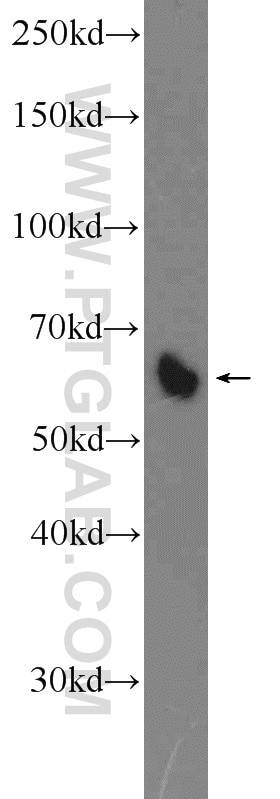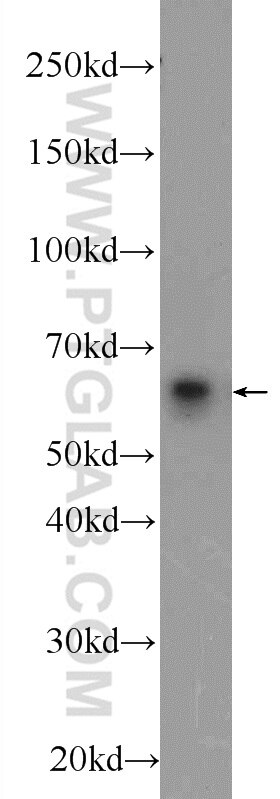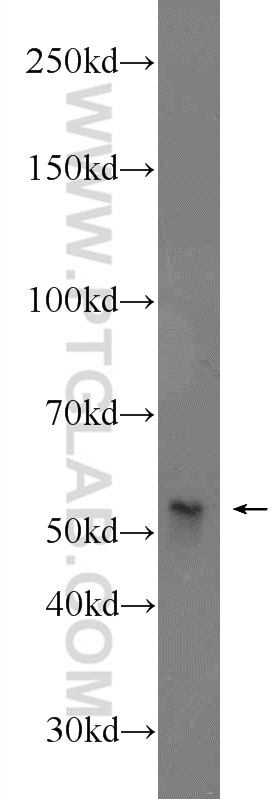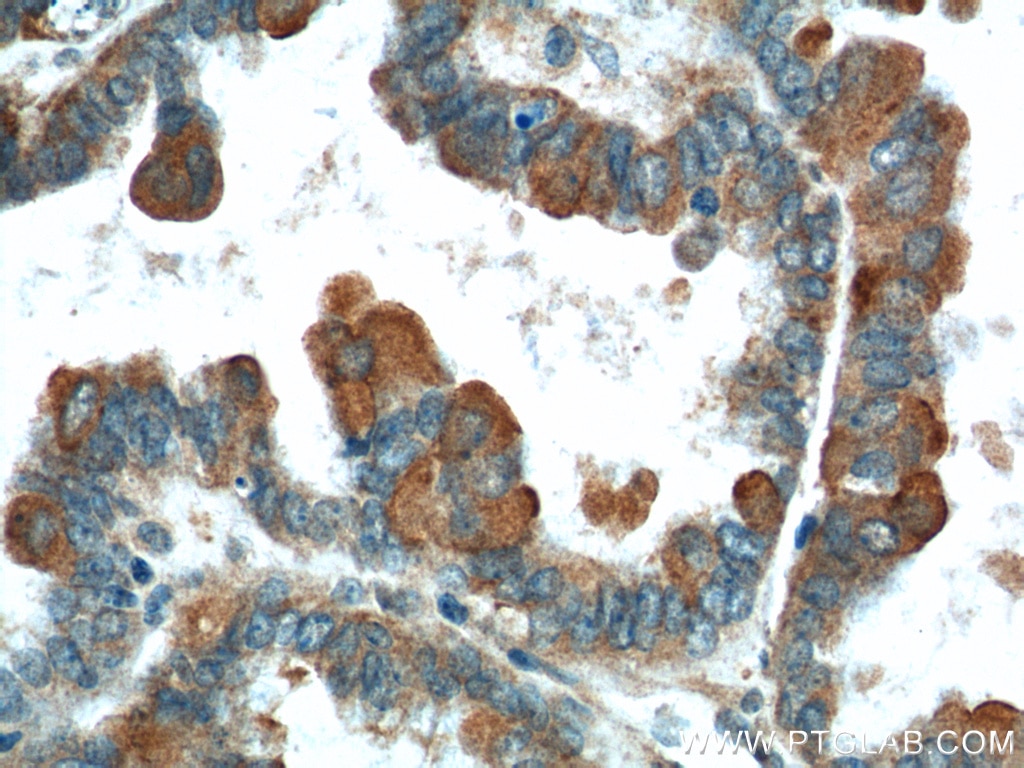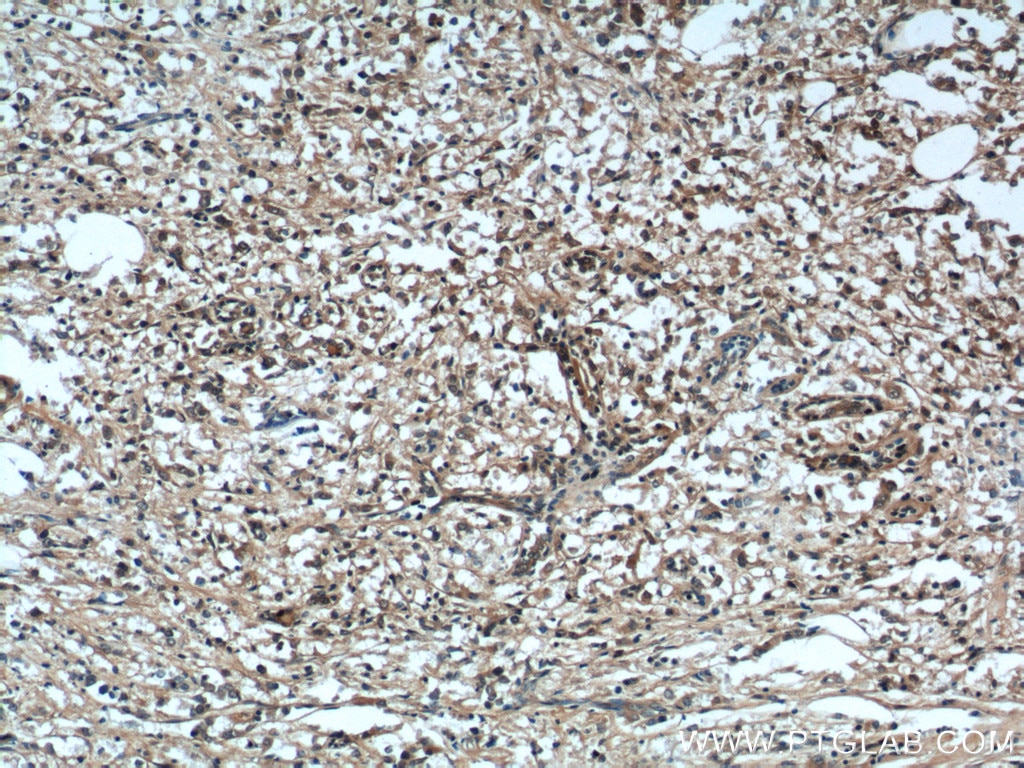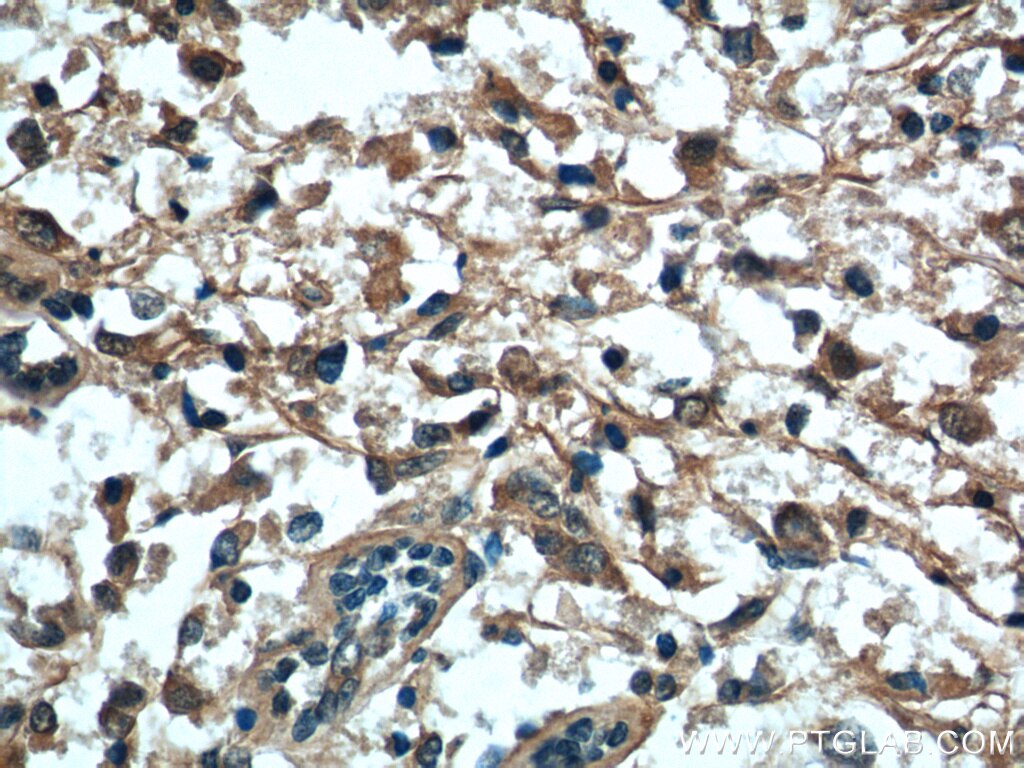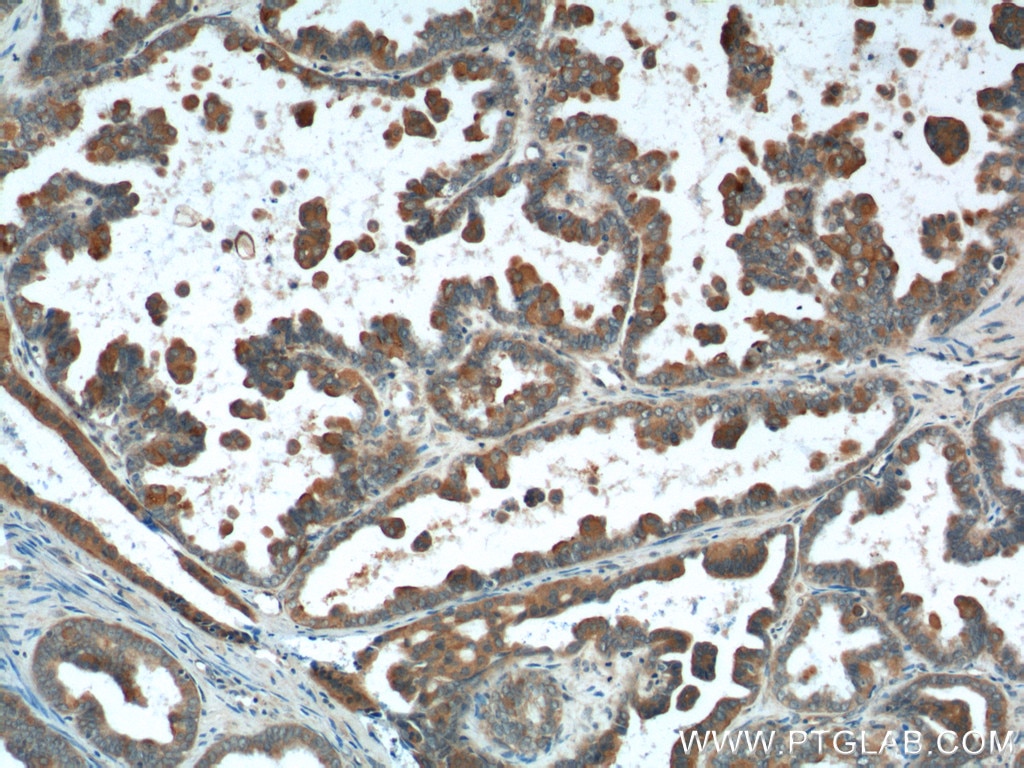B7‑H4 Polyklonaler Antikörper
B7‑H4 Polyklonal Antikörper für WB, IHC, ELISA
Wirt / Isotyp
Kaninchen / IgG
Getestete Reaktivität
human, Maus, Ratte
Anwendung
WB, IHC, IF, ELISA
Konjugation
Unkonjugiert
Kat-Nr. : 12080-1-AP
Synonyme
Geprüfte Anwendungen
| Erfolgreiche Detektion in WB | Mauslebergewebe, A549-Zellen, Rattenlebergewebe |
| Erfolgreiche Detektion in IHC | humanes Ovarialkarzinomgewebe, humanes Mammakarzinomgewebe Hinweis: Antigendemaskierung mit TE-Puffer pH 9,0 empfohlen. (*) Wahlweise kann die Antigendemaskierung auch mit Citratpuffer pH 6,0 erfolgen. |
Empfohlene Verdünnung
| Anwendung | Verdünnung |
|---|---|
| Western Blot (WB) | WB : 1:500-1:1000 |
| Immunhistochemie (IHC) | IHC : 1:50-1:500 |
| It is recommended that this reagent should be titrated in each testing system to obtain optimal results. | |
| Sample-dependent, check data in validation data gallery | |
Veröffentlichte Anwendungen
| WB | See 8 publications below |
| IHC | See 3 publications below |
| IF | See 1 publications below |
Produktinformation
12080-1-AP bindet in WB, IHC, IF, ELISA B7‑H4 und zeigt Reaktivität mit human, Maus, Ratten
| Getestete Reaktivität | human, Maus, Ratte |
| In Publikationen genannte Reaktivität | human, Maus |
| Wirt / Isotyp | Kaninchen / IgG |
| Klonalität | Polyklonal |
| Typ | Antikörper |
| Immunogen | B7‑H4 fusion protein Ag2712 |
| Vollständiger Name | V-set domain containing T cell activation inhibitor 1 |
| Berechnetes Molekulargewicht | 282 aa, 31 kDa |
| Beobachtetes Molekulargewicht | 55-65 kDa |
| GenBank-Zugangsnummer | BC065717 |
| Gene symbol | B7-H4 |
| Gene ID (NCBI) | 79679 |
| Konjugation | Unkonjugiert |
| Form | Liquid |
| Reinigungsmethode | Antigen-Affinitätsreinigung |
| Lagerungspuffer | PBS with 0.02% sodium azide and 50% glycerol |
| Lagerungsbedingungen | Bei -20°C lagern. Nach dem Versand ein Jahr lang stabil Aliquotieren ist bei -20oC Lagerung nicht notwendig. 20ul Größen enthalten 0,1% BSA. |
Hintergrundinformationen
B7‑H4 also named VTCN1, B7X, or B7S1 is a 282 amino acid protein, which contains 2 immunoglobulin-like domains and belongs to the immunoglobulin superfamily. B7‑H4 negatively regulates T-cell mediated immune response by inhibiting T-cell activation, proliferation, cytokine production and development of cytotoxicity. B7‑H4 is a single-pass type I membrane protein, which is over-expressed in breast, ovarian, endometrial, renal cell and non-small-cell lung cancers. The predicted molecular weight of B7‑H4 is 31 kDa. The glycosylated B7‑H4 is 50 to 80 kDa, and the non-glycosylated form is 28 kDa.
Protokolle
| PRODUKTSPEZIFISCHE PROTOKOLLE | |
|---|---|
| WB protocol for B7‑H4 antibody 12080-1-AP | Protokoll herunterladen |
| IHC protocol for B7‑H4 antibody 12080-1-AP | Protokoll herunterladenl |
| STANDARD-PROTOKOLLE | |
|---|---|
| Klicken Sie hier, um unsere Standardprotokolle anzuzeigen |
Publikationen
| Species | Application | Title |
|---|---|---|
Oncogene B7-H4 is increased in lung adenocarcinoma harboring EGFR-activating mutations and contributes to immunosuppression. | ||
J Virol RNASeq analysis of differentiated keratinocytes reveals a massive response to late events during human papillomavirus type 16 infection, including loss of epithelial barrier function. | ||
Cancer Lett Insulin-like growth factor-1 receptor induces immunosuppression in lung cancer by upregulating B7-H4 expression through the MEK/ERK signaling pathway. | ||
Dig Dis Sci Dysregulated B7H4/JAK2/STAT3 Pathway Involves in Hypertriglyceridemia Acute Pancreatitis and Is Attenuated by Baicalin. | ||
Oncol Lett Overexpression of B7-H4 promotes renal cell carcinoma progression by recruiting tumor-associated neutrophils via upregulation of CXCL8. | ||
J Oncol Alpha-Fetoprotein Regulates the Expression of Immune-Related Proteins through the NF-κB (P65) Pathway in Hepatocellular Carcinoma Cells. |
Rezensionen
The reviews below have been submitted by verified Proteintech customers who received an incentive for providing their feedback.
FH Maelle (Verified Customer) (12-19-2024) | Non-functional
|
